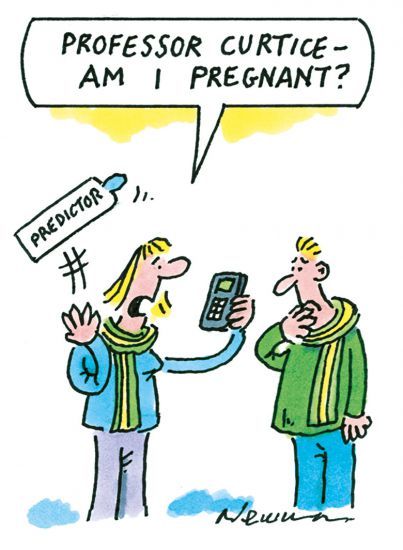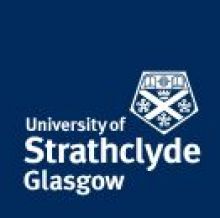
In the battle of pollsters on the UK’s general election night, there was one clear winner – the University of Strathclyde’s John Curtice, acclaimed the Huffington Post on 9 June. Despite initial doubts about the joint BBC, ITV and Sky News exit poll indicating a hung parliament, the politics professor stuck to his predictions, even when early results apparently showed the poll overstating the swing to Labour. Fellow pollster Peter Kellner, the former head of YouGov, even suggested that the Tories might claim a majority of 80 to 100 if Professor Curtice’s margin of error was replicated across the country, but Professor Curtice refused to back away from the poll that he had helped to compile. His prediction eventually proved to be almost spot on, sending the professor’s online followers wild with delight. Memes around the supposed “street fight” between the two big dogs of the polling world were retweeted hundreds of times, with some warning Mr Kellner that “if you come at the king, you best not miss”. With his reputation burnished by his nerveless display, it was no surprise that the “Is John Curtice on TV” Twitter account, which celebrates the near-ubiquity of “the legendary professor” in the national media, hit almost 10,000 followers, not far off the total number of followers for Professor Curtice’s more measured account on Scottish politics.
Was it the student vote wot swung it for Jeremy Corbyn? With his promise to scrap tuition fees and write off student loans, the Labour leader saw his popularity rocket with the young, taking 67 per cent of the 18- to 24-year-old vote, according to early polling by former Conservative Party deputy chairman Lord Ashcroft. However, not everyone is so ecstatic about the re-energised youth vote. In a letter to The Times on 12 June, George Metcalfe said that it was unfair on permanent residents of Canterbury that its 40,000 students had turned the “traditionally Conservative constituency” red for the first time in more than 100 years. Undergraduates, he continued, should be allowed to vote only from their home address. “Our students will eventually go home, but we who live here will be skewed for years by their choice of vote,” grumbled the former lord mayor of Canterbury.
While it might feel as if everything has changed in UK politics following last week’s election, it’s a case of “as you were” when it comes to the ministers overseeing higher education and research policy. Jo Johnson was reappointed as universities and science minister on 12 June, following confirmation over the weekend that Justine Greening would stay on as education secretary and that Greg Clark would continue as business secretary. Mr Johnson tweeted that he was “looking forward” to implementing the Higher Education and Research Act and the teaching excellence framework, omitting to share how he felt about yet another round of bruising battles with Theresa May over the inclusion of overseas students in the net migration target.
A fish that became an honorary academic has died, BBC News Online reported on 3 June. “Dr Leonard P. Annectens” joined the University of Bristol’s earth science department for research purposes in 2004, but the West African lungfish soon entered the ranks of faculty thanks to his popularity with students, the BBC said. In his illustrious career, the “living fossil” was named on a number of published papers, made several successful World Cup predictions, and even become engaged to a model (a prime specimen of Acanthostega gunnari, an extinct fish, kept at the University of Cambridge. Although he was a “grumpy member of staff…we’re all pretty sad about his death”, said Frances Boreham, a PhD student, who revealed Leonard’s final contribution to research. “He died intestate, but in line with what we think were his wishes, his body has been donated to science,” she said.
Academics who leave it until the last minute to prepare their lectures are now in good company. Having been given six months to present his Nobel Prize for Literature lecture, Bob Dylan finally delivered his much-anticipated talk just five days away from the 10 June deadline, meaning that he can now accept his prize money of roughly £727,000. Not a bad payday for a 27-minute lecture and well worth the money, according to some critics who have heaped praise on Dylan’s 4,000-word talk. Writing in The Times on 10 June, Ben Macintyre called the lecture, which was accompanied by “hefty jazz piano chords”, “proof positive of why he deserved to win the Nobel prize, and a demonstration of why he is no mere pop singer…but a giant of modern literature”. With such a rapturous reception for Dylan’s “vernacular folk-poem”, despite some rather thin observations (Homer’s Odysseus was a “travellin’ man, but he’s making a lot of stops”, according to Dylan), those cobbling together lectures with a few days to go may feel a bit more hopeful about their efforts.
Register to continue
Why register?
- Registration is free and only takes a moment
- Once registered, you can read 3 articles a month
- Sign up for our newsletter
Subscribe
Or subscribe for unlimited access to:
- Unlimited access to news, views, insights & reviews
- Digital editions
- Digital access to THE’s university and college rankings analysis
Already registered or a current subscriber? Login





